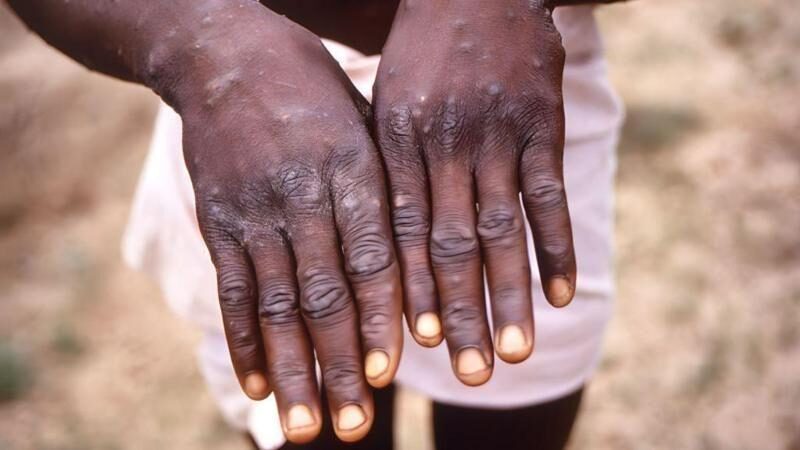BTN News: A new mpox outbreak, fueled by a more contagious variant, has raised alarms in parts of Europe and Africa. However, health officials emphasize that this is not another COVID-19 crisis. Unlike the early stages of the COVID-19 pandemic, authorities have a clearer understanding of how to control mpox outbreaks, thanks to proven public health strategies and vaccine distribution.
The World Health Organization (WHO) is calling for immediate global cooperation to prevent the virus from spreading further, particularly in regions that are currently experiencing an uptick in cases, such as the Democratic Republic of Congo (DRC) and parts of Europe. By acting now, experts say we can avoid a repeat of the panic and mismanagement seen during previous health crises.
New Mpox Variant Emerges: What We Know So Far
A new variant of mpox, referred to as Clade Ib, has been confirmed in Sweden, following a growing outbreak in Africa. This new strain has already claimed at least 450 lives in the DRC, according to recent reports. Health experts are still investigating the variant, but early signs suggest it may spread more easily and cause more severe illness than previous strains.
Despite these concerns, the WHO remains optimistic. Dr. Hans Kluge, WHO’s regional director for Europe, has reassured the public that the general population is at low risk. “This is not another COVID-19,” he stated, stressing the importance of targeted interventions and access to vaccines in high-risk areas.
Vaccines and Public Health Measures: Key to Controlling Mpox
Health authorities, including WHO and the Centers for Disease Control and Prevention (CDC) in Africa, are doubling down on efforts to control the virus. One critical step in combating the outbreak is ensuring that vaccines reach the most affected areas quickly. Denmark-based vaccine manufacturer Bavarian Nordic has agreed to transfer its vaccine production technology to Africa, enabling local production, which will reduce costs and increase supply.
The CDC in Africa has announced plans to roll out 10 million vaccine doses, starting with the DRC and Nigeria next week. While mass vaccination campaigns are not currently being recommended, WHO officials advise those traveling to affected regions to consider vaccination.
Tarik Jasarevic, WHO’s spokesperson, added that public health measures—such as timely detection, isolation of cases, and avoiding close contact with infected individuals—are crucial in curbing the spread of the virus.
Lessons from 2022: Why We Must Act Now
Dr. Kluge reflected on the 2022 mpox outbreak, primarily affecting Europe, which spread rapidly among communities of men who have sex with men. Thanks to public health measures and engagement with affected communities, the outbreak was largely contained.
The same strategies, combined with swift vaccine distribution, can prevent another cycle of “panic and neglect”, Kluge emphasized. With approximately 100 new cases of Clade II still being reported monthly in Europe, experts are urging global solidarity to contain both the Clade Ib and Clade II variants.
Travel Advisory: What You Need to Know
For those planning travel to regions where mpox is prevalent, particularly in Africa, officials recommend caution. Vaccination is being advised for those at higher risk, and public health authorities caution against unnecessary restrictions, such as travel bans targeting African countries.
Dr. Jean Kaseya, director-general of Africa’s CDC, voiced concern over discriminatory travel bans, reminding the international community that Africa has long faced unfair treatment during global health crises, notably during the COVID-19 pandemic.
“We need solidarity, not travel bans. Our partners must support us in medical responses instead of isolating the continent,” Kaseya urged during a recent press conference.
Controlling the Spread: What You Can Do
While the general public faces a low risk of contracting mpox, taking simple precautions can help minimize transmission:
- Avoid close physical contact with individuals displaying symptoms, including fever and skin rashes.
- Practice good hygiene, including frequent hand washing.
- If you’re in a high-risk category or traveling to affected areas, consider getting vaccinated.
Ultimately, the global response to mpox requires cooperation and a proactive approach. With vaccine distribution already underway in Africa and Europe, health officials are hopeful that swift, targeted action will prevent this outbreak from escalating into a global crisis.
Conclusion: A Call for Action
While mpox continues to pose a threat, particularly in Africa, health experts agree that this is a controllable outbreak. Early detection, access to vaccines, and strong public health measures remain the best defense against further spread. Unlike COVID-19, the world is equipped with the knowledge and tools to stop mpox before it becomes a more significant global issue.
By acting now—ensuring equitable vaccine distribution and following established health protocols—we can prevent a full-blown health crisis and ensure the world doesn’t experience another cycle of panic and neglect.


